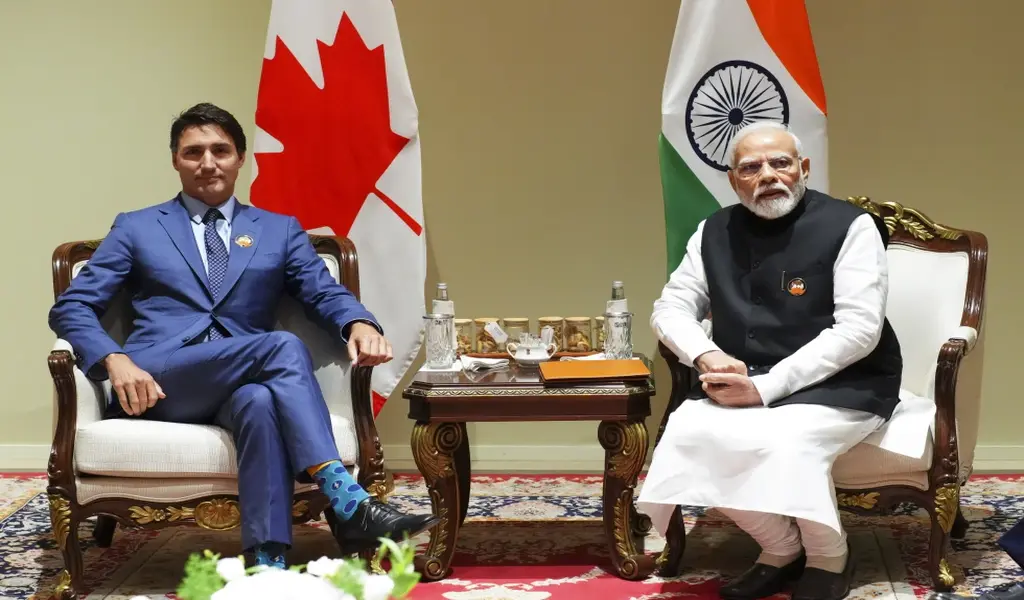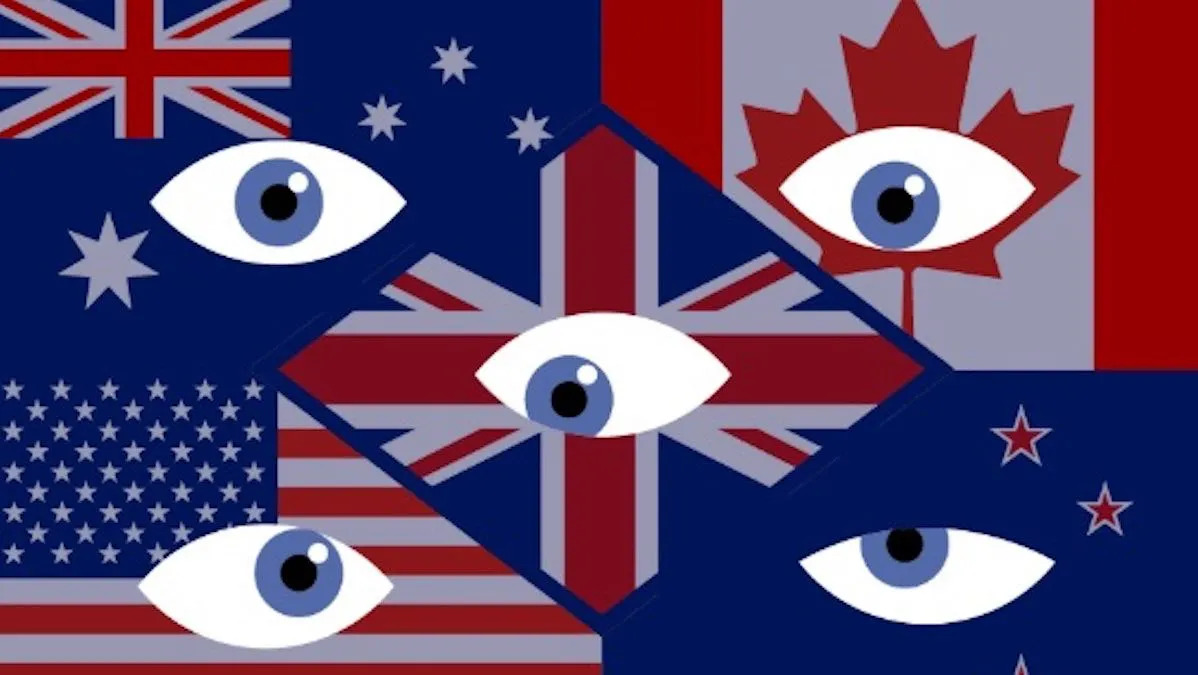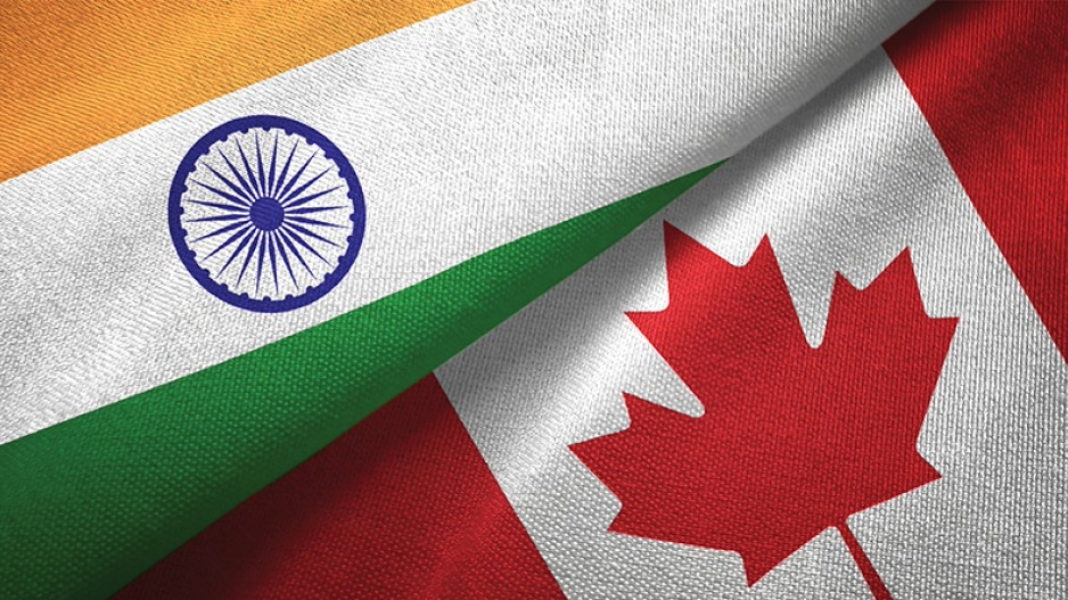News
Canadian PM’s Allegations Of Indian Involvement In Sikh’s Assassination: “Five Eyes” Intelligence

(CTN NEWS) – In recent months, a storm of controversy has engulfed diplomatic relations between Canada and India, with Canadian Prime Minister Justin Trudeau accusing the Indian government of potential involvement in the assassination of Hardeep Singh Nijjar, a Sikh Canadian.
What makes this situation even more intriguing is the revelation that intelligence shared among members of the “Five Eyes” alliance played a significant role in shaping Canada’s stance on this sensitive issue.
In this blog post, we delve into the intricacies of this diplomatic crisis, exploring the role of intelligence-sharing, the strained relations, and the need for transparency.
The Intelligence Web
U.S. Ambassador David Cohen’s revelation that intelligence shared among “Five Eyes” partners influenced Canada’s public allegations against India has added a layer of complexity to this already sensitive issue.
The “Five Eyes” alliance comprises Australia, Canada, New Zealand, the United Kingdom, and the United States, and it is known for its secretive intelligence-sharing practices.
While Ambassador Cohen did not divulge specific details about the shared intelligence, it is clear that it played a pivotal role in Canada’s decision to accuse India.
The importance of intelligence-sharing alliances cannot be overstated in today’s world, where global security threats require nations to cooperate closely.
These alliances allow member countries to pool their intelligence resources, providing valuable insights into various international issues.
However, the question arises: should such shared intelligence be used as the basis for public allegations without concrete evidence?
The Canadian Official’s Revelation
Prior to Ambassador Cohen’s statements, a Canadian official hinted at the involvement of intelligence from a “major ally” in substantiating Canada’s claims against India.
This official mentioned that the allegations were rooted in the surveillance of Indian diplomats in Canada, further fueled by intelligence provided by this undisclosed major ally.
This revelation raises several concerns. First, it underscores the secretive nature of intelligence-sharing alliances, where member countries often operate behind a shroud of secrecy.
Second, it raises questions about the transparency of such actions, especially when they have the potential to strain diplomatic relations significantly.
Should intelligence-sharing be conducted in a way that ensures accountability and prevents hasty public allegations?
Strained Canada-India Relations
The fallout from Prime Minister Trudeau’s allegations has cast a shadow over Canada-India relations, pushing them to their lowest point in recent history. India vehemently denied any involvement in Nijjar’s assassination, dismissing the allegations as “absurd.”
In response, both countries expelled top diplomats, and India imposed restrictions on Canadian citizens, including the suspension of visa issuance and a reduction in diplomatic staff.
The escalating tensions between the two nations serve as a stark reminder of the fragile nature of international diplomacy.
Accusations of this magnitude can lead to long-lasting consequences and impact various aspects of bilateral relations, including trade, cultural exchange, and people-to-people ties.
The Need for Public Evidence
One of the key issues at the heart of this controversy is the absence of public evidence to support Prime Minister Trudeau’s allegations.
While intelligence-sharing alliances often operate covertly, the lack of transparency in this matter has raised questions about the credibility of the accusations. Should governments be more accountable when making public allegations based on shared intelligence?
The importance of providing concrete evidence in such cases cannot be overstated. Transparency not only bolsters the credibility of accusations but also helps build trust among nations.
Without it, there is a risk of eroding the trust that forms the foundation of international relations.
The Hardeep Singh Nijjar Case
It’s essential to remember that at the center of this controversy is the tragic assassination of Hardeep Singh Nijjar. Nijjar, a Canadian citizen since 2007, was a 45-year-old Sikh separatist wanted by Indian authorities for several years.
His murder remains a tragic event, and it is vital that a thorough and unbiased investigation takes place to bring those responsible to justice.
The complexities surrounding this case further highlight the need for transparency and accountability in handling such sensitive matters. It is crucial that justice is served, and the truth is uncovered, regardless of the diplomatic fallout.
Conclusion
The public allegations made by Prime Minister Trudeau against the Indian government in the assassination of Hardeep Singh Nijjar have sparked a significant diplomatic crisis between Canada and India.
The role of intelligence-sharing alliances in shaping these allegations underscores the complexities of international relations and the importance of trust, transparency, and accountability in such matters.
As tensions persist, the world watches closely, hoping for a peaceful resolution and justice for Hardeep Singh Nijjar’s tragic death.
Balancing the imperatives of intelligence-sharing with the demands of diplomatic transparency remains a challenge that nations must address in an increasingly interconnected world.
RELATED CTN NEWS:
Living With Era Of COVID-19: What Does The Future Hold?
Uyghur Scholar Rahile Dawut Receives Life Sentence For ‘Endangering State Security’ In China
CDC’s Independent Vaccine Advisers Recommend Maternal Vaccine To Protect Infants From RSV





























